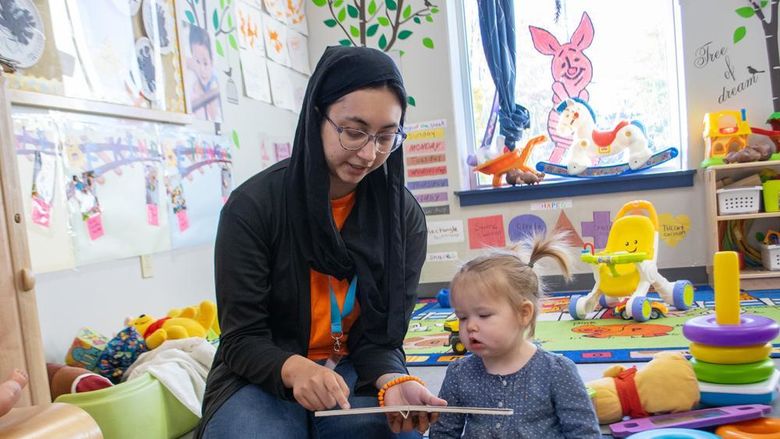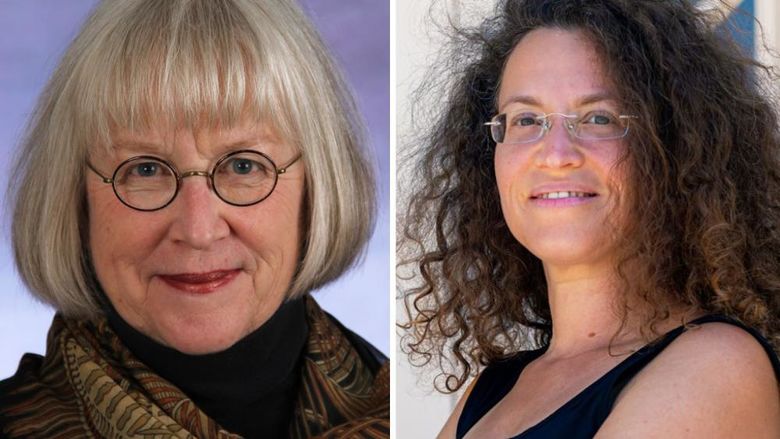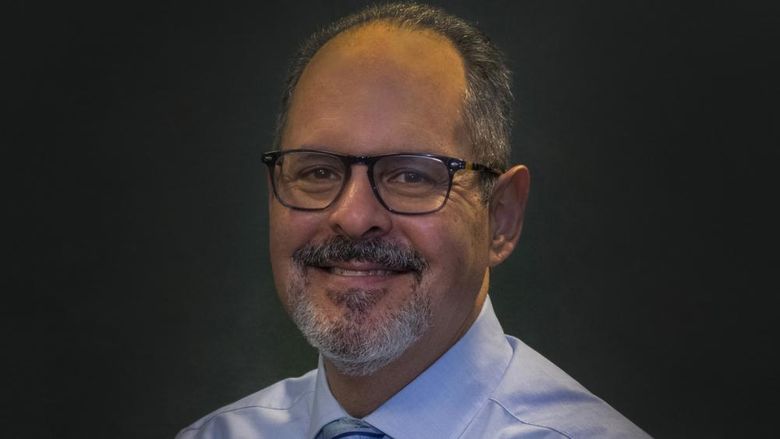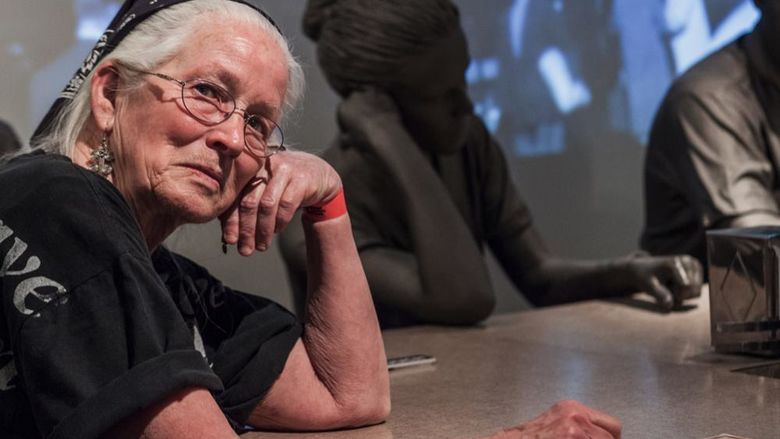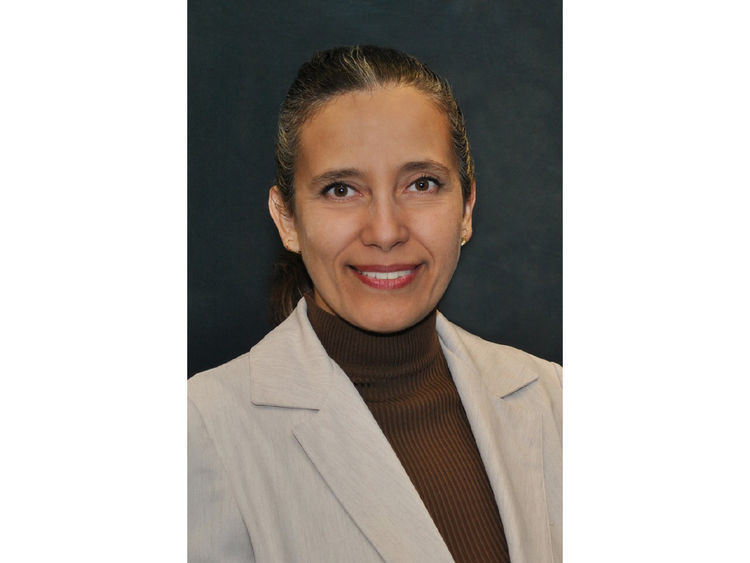
Penn State alumna Patricia Aguilera is an assistant teaching professor in the School of Behavioral Sciences and Education at Penn State Harrisburg.
Patricia Aguilera, assistant teaching professor in the School of Behavioral Sciences and Education at Penn State Harrisburg, never intended to leave her home country of Mexico to live, learn and work in the United States.
“It was more of a coincidence,” she recalled.
Aguilera moved to the United States in 2012, when she was 39 years old. That year, she began her doctor of education program in adult education and lifelong learning, with a focus on education for older adults — a degree not offered anywhere in Mexico. She chose Penn State based on its excellent world rankings as well as the graduation rates from the program she was interested in.
“I knew it would be hard, but doable,” she said. “If I was going to make this effort and change my life, it had to be worth it. Choosing Penn State was crucial.”
The admissions process also was very friendly to international students, and she felt that the University really cared about her and helped her through the process. This was especially important because Aguilera had only learned English a year prior.
“I didn’t learn English until I was 38 years old,” she said.
If I was going to make this effort and change my life, it had to be worth it. Choosing Penn State was crucial.—Patricia Aguilera , assistant teaching professor, School of Behavioral Sciences and Education, Penn State Harrisburg
Aguilera’s life at Penn State turned into a lifelong affair. But before she came to Penn State, she had already been busy in Mexico. She spearheaded, along with her father, the creation of UNIDE, an institution dedicated to older learners. She created the curriculum for the school, which includes four major areas: Skills and Entrepreneurship, Health and Wellness, Liberal Arts, and Technological Literacy. She used her experience creating curriculum for Laurete Education as a springboard to create the new school. At one point, it enrolled 1,200 students, and still has nearly a thousand despite the pandemic.
“It’s important to me to create programs that are sustainable,” Aguilera said. “I want all of my programs to be able to continue after I’ve moved on.” UNIDE certainly fits that bill.
Aguilera also has been incredibly active outside of the classroom at Penn State. She created the Global Lion Mentor program, which connects current international students with incoming or prospective international students. This allows them to share information and answer questions even from their home countries. It also creates lasting bonds.
“When I came to the United States, I felt a little isolated,” she said. “I wondered if they were feeling the same way. As it turns out, making new connections and friendships was a big problem for international students.”
The program — now run by Wendy Moynihan — has become a “best practice” for Penn State, Aguilera said.
Aguilera also wanted to create the program to inform students about cultural difficulties they might encounter in the United States. She had a few negative experiences and faced discrimination, and she wanted to make sure students were prepared for that possibility.
“I knew my experiences and it left me thinking about what students are facing,” she said. “One of the reasons I love the classroom so much is that I can be a figure of authority, and as a figure of authority, I have the opportunity to challenge things and create new ways of thinking. You can create an environment that challenges students about what they think.”
Education is the key for a different future. And you can’t say you want something to change and then not do anything to change it. Talking is a good first step, but it can’t be the only step.—Patricia Aguilera
Aguilera is a believer in global ethics — teaching students that they are citizens of a larger world, not just the United States. She advises the Latino Club at Penn State Harrisburg and is part of the Latino Hispanic Professional Association (LHPA) in Harrisburg.
“When I came to the United States, it took me a while to get used to the term ‘Latino/a.’ I always just considered myself to be Mexican, the same way someone from Peru would consider themselves to be Peruvian,” Aguilera said. “I never internalized any of the negative talk because I wasn’t raised to. But I know that others don’t have the same experience.”
Aguilera wants to use her platforms — as a leader, as a teacher, and as an engaged community member — to push people to challenge their assumptions and ethnocentricity.
“Education is the key for a different future,” she said. “And you can’t say you want something to change and then not do anything to change it. Talking is a good first step, but it can’t be the only step.”
This summer, she will be taking a group of students to London on a Study Abroad program. She continues her work with the Latino Club and the LHPA.
I always say, your institution is like your last name. I’m not just Patty — I’m Patty from Penn State. It is and always will be in my heart.—Patricia Aguilera
Now, a decade after coming to Penn State, Aguilera continues to adore the University.
“I always say, your institution is like your last name,” she said. “I’m not just Patty — I’m Patty from Penn State. It is and always will be in my heart.”
She hopes that incoming students will love the University as much as she has — but she recognizes that international students face unique challenges.
“As an international student, once you come to the United States, you will not be seen the same as you are in your home country,” she said. “Many of the markers of your identity will be left behind, and that can be difficult to deal with. This is normal, and you may feel a little lost in the process, but always remember who you were before you came here.”
“In the end, you will become much more than you were when you came,” she said.
